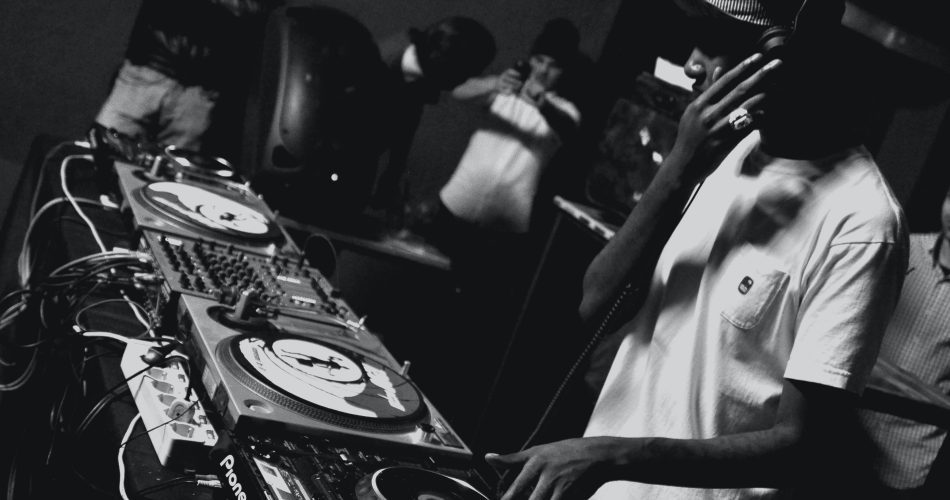Introduction
Hip hop is a genre that has been around since the 1970s and has evolved over time, giving rise to different production styles. Old school hip hop emerged in the early days of the genre and was characterized by its simplistic beats, funky loops, and catchy rhymes. On the other hand, new school hip hop came into being in the mid-1980s and incorporated more complex melodies, electronic sounds, and intricate lyrics. Both old school and new school hip hop have their unique strengths and weaknesses when it comes to music production styles. In this blog post, we'll take a closer look at both these styles of production to examine their differences so you can determine which one suits your taste
What is Old School Hip Hop?
Old school hip hop is the earliest form of hip hop music that emerged in the 1970s and early 1980s. This style of production was characterized by its minimalistic approach to beats, incorporating funk and disco loops, and simple rhymes.
One of the primary features of old school hip hop was its emphasis on breakbeats – using drum breaks from popular songs and manipulating them to create a unique sound. MCs would rap over these beats with simple lyrics that focused on partying, dancing or boasting about their skills.
Old school hip hop also featured a lot of scratching techniques used by DJs during live performances. The use of samplers wasn't common at this time, so producers would often layer different sounds over each other with manual playback methods.
Old school hip hop has an authentic rawness that helped lay the foundation for future generations. Its simplicity made it accessible to many people who wanted to make music without expensive equipment or extensive technical knowledge.
What is New School Hip Hop?
New School Hip Hop emerged in the 1980s and is characterized by its use of electronic instruments, sampling techniques, and innovative production methods. Unlike Old School Hip Hop, which relied heavily on drum machines and turntables for beats, New School producers make extensive use of digital audio workstations (DAWs) such as Ableton Live or Logic Pro.
In terms of lyrical content, New School artists often focus on personal experiences rather than societal issues. They also incorporate more melodic elements into their music, including singing hooks or using Auto-Tune to add pitch correction effects to their vocals.
One notable aspect of New School Hip Hop is the rise of trap music – a subgenre that features heavy basslines, fast hi-hats patterns and slow tempos. It originated in Atlanta in the early 2000s but has now become a staple across all regions of the US.
New School Hip Hop represents an evolution from traditional hip hop production styles while still maintaining the core values of creativity and self-expression. Its influence can be seen not only within hip hop but also across contemporary pop culture as a whole.
The Pros and Cons of Old School vs New School Hip Hop Production Styles
Old school hip hop production styles were characterized by the use of analog equipment, such as turntables and samplers. The raw and gritty beats created through these methods gave old school hip hop a unique sound that is still loved today.
On the other hand, new school hip hop production relies more on digital tools such as software programs to create beats. This allows for greater flexibility in terms of editing and manipulating sounds, but has also been criticized for being too formulaic.
One advantage of old school production styles is their emphasis on live performance. DJs would scratch records during shows, adding an extra layer of energy to the music. However, this aspect can sometimes be lost with newer technology-based approaches to producing music.
Newer production techniques often incorporate elements from different genres beyond just sampling funk or soul tracks like in the past. This means that producers can experiment with different sounds and textures which results in a wider range of creative possibilities.
However, some argue that this increased availability can lead to less originality since anyone with a laptop and basic skills can produce similar sounding beats without developing their own style.
Both old school and new school hip hop production have their advantages and disadvantages depending on what you are looking for in your music experience.
Conclusion
To sum it up, both old school and new school hip hop production styles have their own unique characteristics and strengths. Old school hip hop focuses on simpler beats with a heavy emphasis on sampling while new school hip hop places more importance on complex melodies, intricate drum patterns, and digital production tools.
Both styles have their pros and cons when it comes to creating hit songs that appeal to audiences. However, one thing is for certain – hip hop has come a long way since its inception in the 1970s. From underground parties in the Bronx to topping charts around the world, this genre of music has continued to evolve over the years.
Regardless of which style you prefer as a fan or producer, there’s no denying that both old school and new school artists have made significant contributions to the growth and development of hip hop culture as we know it today. Ultimately, whether you’re drawn towards classic tracks or modern bops is a matter of personal preference – after all, good music is good music regardless of when it was made
